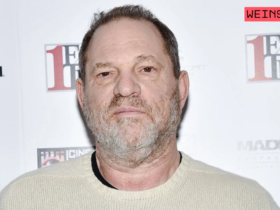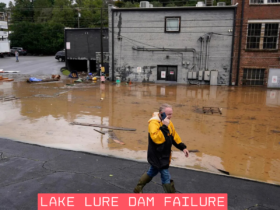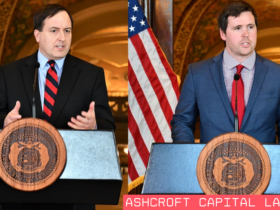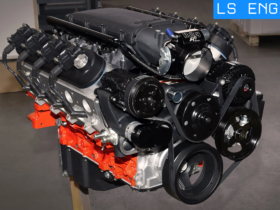NBC’s long-running political affairs program, meet the press s76e46, has been a cornerstone of Sunday morning television since its inception in 1947. Now in its 76th season, the show offers one of the most prominent platforms for political discussions, interviews with key leaders, and comprehensive national and international affairs analyses. Episode 46 of Season 76, aired recently, captured significant attention due to the high-profile guests, timely topics, and the broader political landscape. In this detailed overview, we will break down the key segments of Meet meet the press s76e46, analyzing the crucial discussions, guest insights, and the overall tone of the episode.

Overview of Meet the Press s76e46 and its Role in Political Discourse
meet the press s76e46 is renowned for bringing political figures face-to-face with hard-hitting questions, often addressing controversial or urgent issues that matter to the American public and global audiences alike. The show’s format typically includes interviews, roundtable discussions, and expert analyses designed to give viewers a deeper understanding of current political and societal issues. As the program has evolved, it has maintained its central role in American media by adapting to the fast-paced world of 24-hour news while offering well-thought-out conversations that offer substance over sound bites.
The Guests of Episode 46: A Power-Packed Lineup
One of the standout elements of meet the press s76e46 is its ability to attract influential figures from politics, journalism, and academia. Season 76, Episode 46, was no exception, featuring a dynamic range of guests who provided diverse perspectives on the day’s pressing issues.
The primary guest for this episode was a sitting U.S. senator, who has been a vocal advocate on national security and foreign policy matters. The senator’s presence on the show was timely, given the recent developments in international relations and ongoing debates in Congress over military spending and defense strategies. The host didn’t hesitate to ask tough questions, prompting the senator to clarify their position on key issues, including U.S.-China relations, defense budget allocations, and the future of NATO in a shifting geopolitical landscape.
In addition to the senator, the episode also featured two prominent journalists from leading national newspapers, who contributed their perspectives on the current administration’s domestic policy challenges. Their insights into the upcoming election cycle and their analysis of the political divisions within Congress made for a thought-provoking discussion. Lastly, a distinguished political scientist provided commentary on the broader political implications of these debates, framing them within historical contexts and offering predictions for how the current political environment might shape future elections.
Key Discussion Topics: National Security and Foreign Policy
One of the central themes of Meet the Press S76E46 was national security and foreign policy, particularly relevant in the wake of increasing tensions with foreign adversaries. The conversation focused heavily on the U.S.-China relationship, a complex and multifaceted issue that has ramifications for global trade, cybersecurity, and military strategy. The host, known for asking probing questions, pressed the senator on the administration’s approach to China, particularly regarding trade tariffs, intellectual property concerns, and military posturing in the South China Sea.
The senator offered a measured response, noting that while economic competition with China is inevitable, it is crucial to avoid framing the relationship purely in adversarial terms. According to the senator, the United States should build stronger alliances with its traditional partners in Asia and Europe, which would counterbalance China’s growing influence. However, the senator also acknowledged the reality of cyber threats and the necessity of maintaining a robust military presence in the Asia-Pacific region to ensure stability.
The discussion naturally flowed into a broader conversation about the state of the U.S. military and the defense budget. With debates in Congress about defense spending cuts, the senator argued that national security should not be compromised in favor of short-term budget savings. He emphasized that in a world where threats are becoming increasingly sophisticated—from cyberattacks to disinformation campaigns—the U.S. must invest in new technologies and defense systems to stay ahead of its adversaries. It was one of the more heated exchanges of the episode, as the journalists on the panel countered that unchecked military spending could lead to fiscal irresponsibility and called for greater oversight.
Domestic Policy: The Economy, Healthcare, and Immigration
While international affairs dominated most of the discussion, the panel delved into significant domestic issues, notably the economy, healthcare, and immigration. These are perennial concerns for American voters, especially as the next presidential election cycle looms.
The discussion around the economy touched on inflation, a concern for many households nationwide. The journalists on the panel pointed out that despite strong job numbers, inflation continues to erode the purchasing power of middle-class Americans. It led to a debate about the effectiveness of the Federal Reserve’s interest rate hikes and the broader economic policies of the current administration. While acknowledging the difficulties of balancing inflation with economic growth, the senator reiterated that long-term investments in infrastructure, green energy, and education would help create a more sustainable economy.
Another key issue, healthcare, was addressed briefly but poignantly. With rising healthcare costs and ongoing debates over Medicare expansion, the conversation touched on the viability of the current system. The senator noted that healthcare reform is a critical area both parties must work on, particularly addressing prescription drug prices and access to affordable care. The journalists raised concerns about partisanship and whether significant reforms could realistically be passed in the current political climate.
Immigration was another hot topic during the episode. The panel discussed the recent surge at the southern border, with the senator providing insight into the administration’s response to the influx of migrants. The senator emphasized the need for comprehensive immigration reform. This stance aligned with previous bipartisan efforts but expressed skepticism about whether meaningful legislation could pass in a divided Congress. It sparked a lively debate about border security, asylum policies, and the economic impact of immigration, with the journalists weighing in on the political implications of the administration’s handling of the issue.
Election 2024: The Political Climate and Predictions
As the 2024 presidential election draws nearer, Meet the Press S76E46 provided an opportunity to discuss the political climate and the strategies employed by both major parties. The political scientist on the panel offered a fascinating analysis of the shifting demographics within the electorate, noting that younger voters, who are more diverse and socially progressive, are likely to play a pivotal role in the outcome of the election. However, political scientists have also pointed out that older, more conservative voters still hold significant sway in key swing states.
The discussion turned to the various potential candidates, focusing on the primary races. The panelists debated the potential impact of third-party candidates, who could siphon votes away from the major parties and complicate an already volatile election. They also discussed the growing influence of social media in shaping public opinion, with the journalists providing examples of how misinformation and targeted advertising have become central to modern political campaigns.
The senator was careful not to endorse any particular candidate but offered some general thoughts on what voters should look for in a future leader. According to the senator, the next president must be someone who can bridge the widening gap between the two parties and bring a sense of unity to a deeply polarized nation. The political scientist echoed this sentiment, warning that without significant efforts to reduce polarization, the country could be in for an even more contentious and divisive election season than in previous years.

Conclusion: A Thought-Provoking Episode
Meet the Press s76e46 was a rich and engaging episode that tackled some of the most pressing issues facing the United States today. From the intricacies of foreign policy and national security to the challenges of domestic governance, the episode provided viewers with a comprehensive overview of the current political landscape. The guests, representing a range of perspectives, contributed to a lively and informative discussion that underscored the complexity of the issues at hand.
As always, Meet the Press delivered a nuanced conversation that avoided simplistic answers and encouraged viewers to think critically about the political and economic challenges ahead. With the 2024 election looming and numerous unresolved domestic and international issues, Meet the Press will undoubtedly continue to be a vital forum for debate and analysis in the coming months.


















Got a Questions?
Find us on Socials or Contact us and we’ll get back to you as soon as possible.